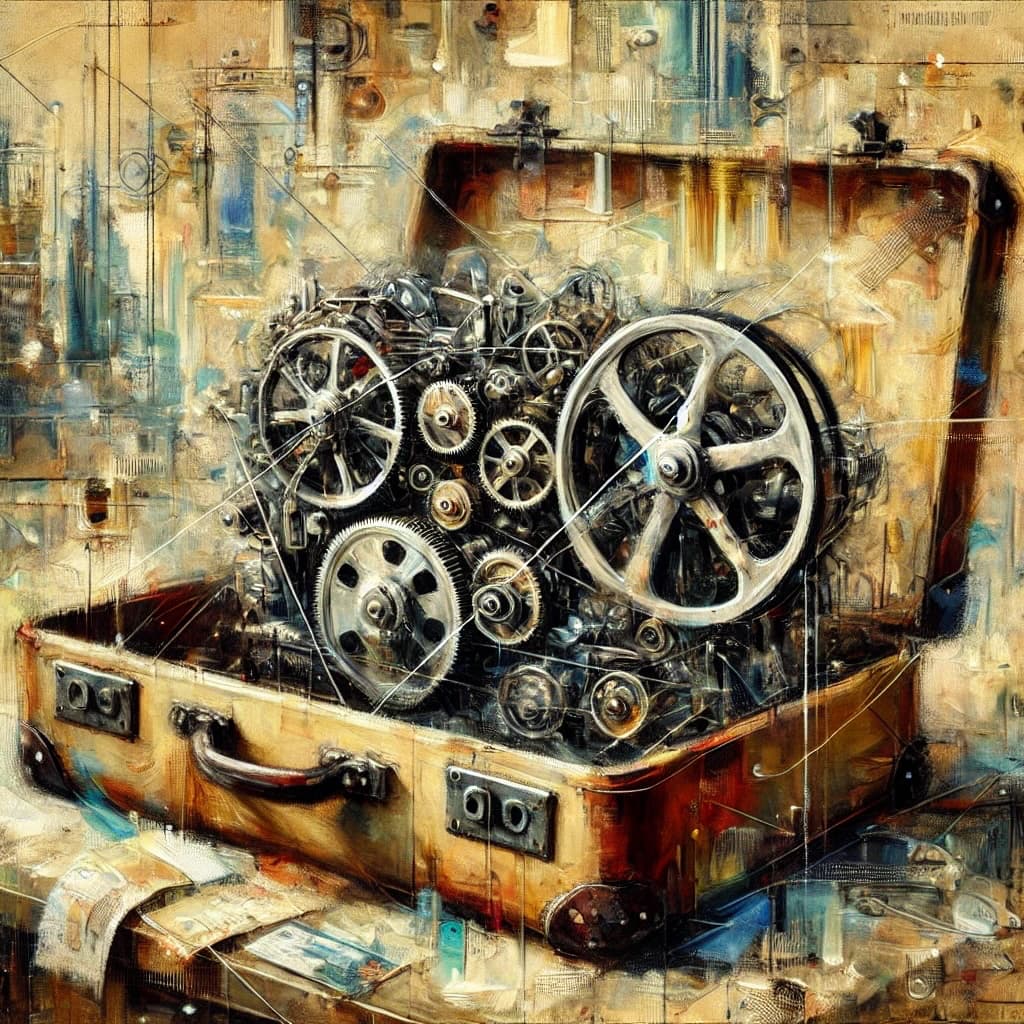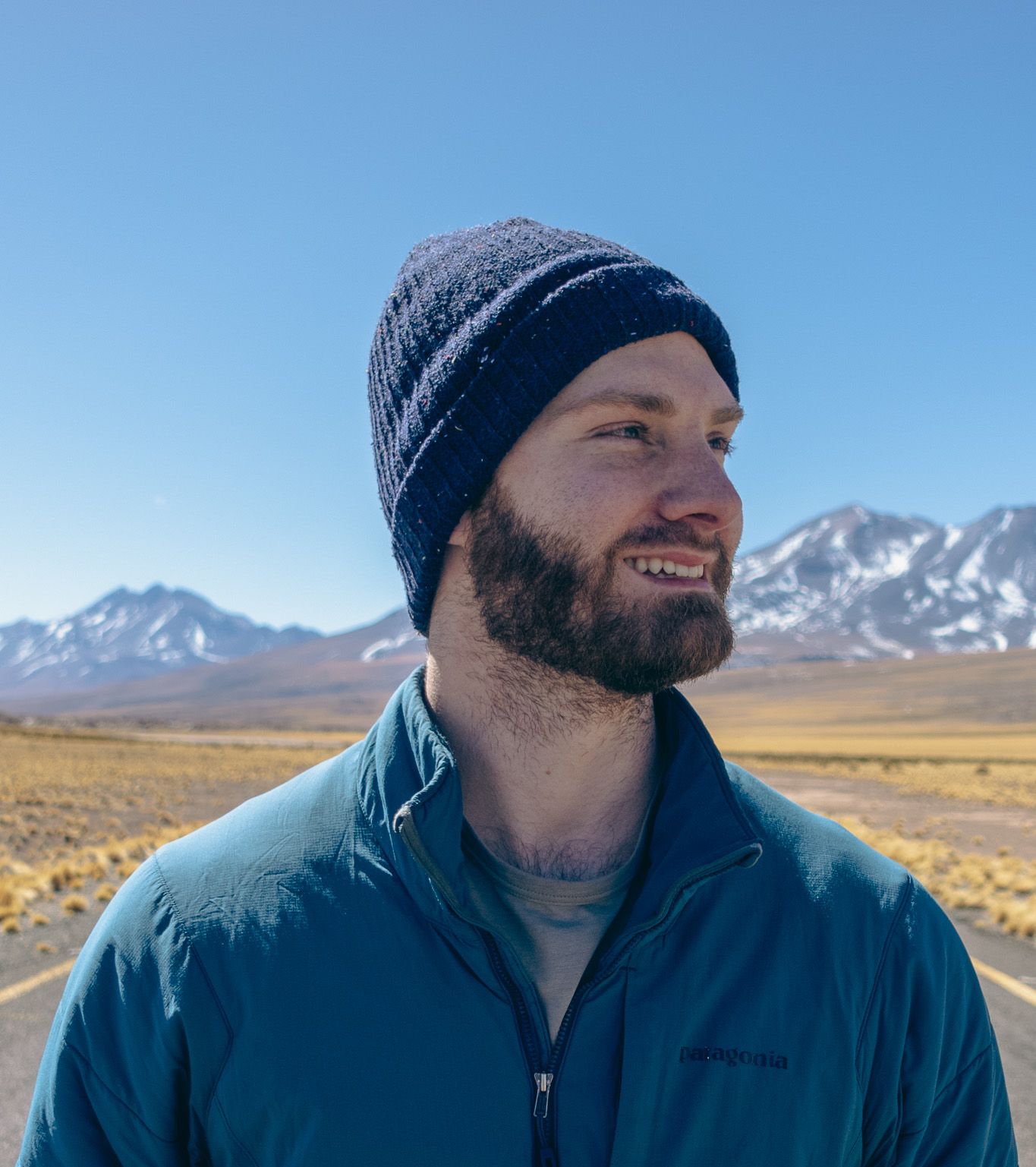My suitcase algorithm
Should we travel like this anymore?

My computer is starting to make that sound again. It’s warm, overheating from the disaster that is my browser at the moment. Twenty tabs full of Google Maps, blogs, menus, guidebooks, and spreadsheets are all leaving my computer struggling.
I think to myself “Just a few more tabs. I still need to get through Eater and Thrillist - or did I do Thrillist already? No no, that was Time Out. Well, I’ll just double check._”
During my early traveling years, that’s more or less how the trip planning process went. I spent a few days of rigorous, diligent research designed to scope out what the best was. That’s it, just the best. The best activities, the best flights, the best food, the best Airbnbs - the best of everything. Of course I wanted the best. No, I deserved the best.
But by far the most important to me was the food and drink. This was serious business. After all, I’m a disciple of the Bourdainian Order - I don’t fuck around with the food or drink. I want to eat like a local wherever I go, damn it. So, naturally, most of my time and energy went to finding where I was going to eat on my next trip.
I would comb through all the material about a place I could find - different articles, lists, guidebooks, blogs - you name it, just to find the best restaurants. The important part was to cross-reference, say Eater, with something like Thrillist. If the restaurant appeared on both lists, that’s great, +1 for the restaurant. If not, that wasn’t inherently bad, but definitely noted in my spreadsheet. Then I’d scan Google Maps for its star rating - 4.5 and above, baby - and a brief perusing of the comments. I had no loyalty to any particular publication or guide, my only loyalty was to my quest for epicurean perfection.
This recursive process went on until I distilled the list into a handful of highly vetted restaurants that were guaranteed to be delicious. Does that sound exhausting? Obsessive, even? Yes and absolutely yes. But I found it fun and it gave me something to do at work during that 30-minute block between meetings when you definitely can’t do anything else (…right?).
A few days before my flight, I’d look at these little markers on my Google Map with pride. It was beautiful. Everything worth doing and everything worth eating was right there.
Then, I’d go on the trip. Oh man, was it a good vacation, too. My Airbnb was perfectly quaint and in the trendy part of town. You know, the part of town that was just gentrified enough to make me feel cool and edgy yet refined. It was also conveniently located next to all my little dots on Google Maps.
In the mornings, my coffee was a light roast single origin pour-over (you bet your ass I can find drip coffee in any country). My lunches were in cozy and chic wine bars. Dinner was a tasting menu with an up-and-coming chef, reinventing classical fare using local ingredients. And of course the cocktail bars were exquisite and intimate.
Then I’d come home and resume my life. During my commute and the routine of my office job, I would reminisce about the immersive cultural experience I just came from. I was newly enlightened, of course. I’d make small talk about it with colleagues who were just about to head off on a trip of their own. And when I got home, I’d open up the computer and start again.
I became so good at this that it didn’t matter where I went. Without fail, I had the best food, drinks, and experiences wherever I went. It was reliable. It was mechanistic. Algorithmic, even.
It took me a few years to understand what was going on here. Eventually, I realized that, in a way, I had developed my own little mini travel algorithm. Whenever a trip was coming up, all I needed to do was plug in a few inputs into my suitcase algorithm, and it would produce my itinerary.
After a few years of running my little suitcase algorithm, I started to notice a few patterns. At happy hours after work, everyone would pull out their fancy premium travel credit cards when the bill came. At the airport lounges I’d sit next to other well-heeled millennials getting pre-flight drinks at the bar. We’d probably be wearing the same travel pants. And when we landed we’d stand next to each other waiting for an Uber to our Airbnb.
The patterns were particularly stark when I went to countries where my skin color isn’t the majority. But every time I sat down I’d be surrounded by other folks who looked like me. How does that work? Aren’t I supposed to be eating like a local?
That was the moment. I started wondering why I traveled thousands of miles just to be eating overpriced ceviche next to some other American. Don’t get me wrong, I enjoyed going to all those little dots on my map. But it was frictionless, hollow, and most disturbingly, the same as everyone else’s.
Of course, all these folks, the ones eating small plates next to me, were running their own suitcase algorithm, producing the same little dots on their carefully planned Google Maps. But at the same time it felt bigger, more insidious than that. Some guiding force was gently nudging us all into a general sameness.
Despite all the planning, I know that the most memorable moments and meals on the road have always been the most serendipitous. The random roadside beer after a hike in the Azores, an impromptu pasta lunch in Tirana, or meeting and befriending some strangers because they asked you directions. None of those moments were in my Google Map or spreadsheet. Those were my moments, nobody else could have them.
I think we lost the space for serendipity. The feeling of wonder and magic. Feeling surprised or delighted. Feeling disappointed, even. I’ve always felt these are the products of whatever friction I encountered on the road. I figured out how to adapt and be flexible, which opened me to different experiences and understandings. That feeling is intoxicating, and I’d bet that’s what most people get addicted to.
It feels like that space is getting squeezed out. We’ve spent the last twenty years or so removing any sort of travel-related friction. I can plan an entire vacation while I sit on my couch at home, with my phone in one hand and a bag of chips in another. With a few taps on a screen, I can fly halfway across the world, book an Airbnb, and make some reservations at a couple of nice restaurants. Within each of those swipes and clicks are algorithmic rankings, dutifully providing us with the best a destination can offer. I don’t even have to talk to a single person. Hell, with my noise canceling headphones I don’t even have to talk to someone during my trip.
So without the friction, what are we traveling for now? Is it the pictures? The Michelin-starred restaurants? Fodder for our insatiable FOMO? Or perhaps, ego?
There has been quite a bit of chatter around the internet about the state of travel and it’s impact - overtourism is a fact of life for many, cities are being rapidly gentrified, Airbnb is causing housing crises wherever it goes, and our environment is suffering - to name a few. Much of the blame gets put on social media and media writ large, and rightfully so! But if we’re honest, we’ve been running our own little suitcase algorithms for a while now. We lost the plot a long time ago, social media has just exacerbated it.
Which kind of makes you wonder - is the way we travel these days worth it?
